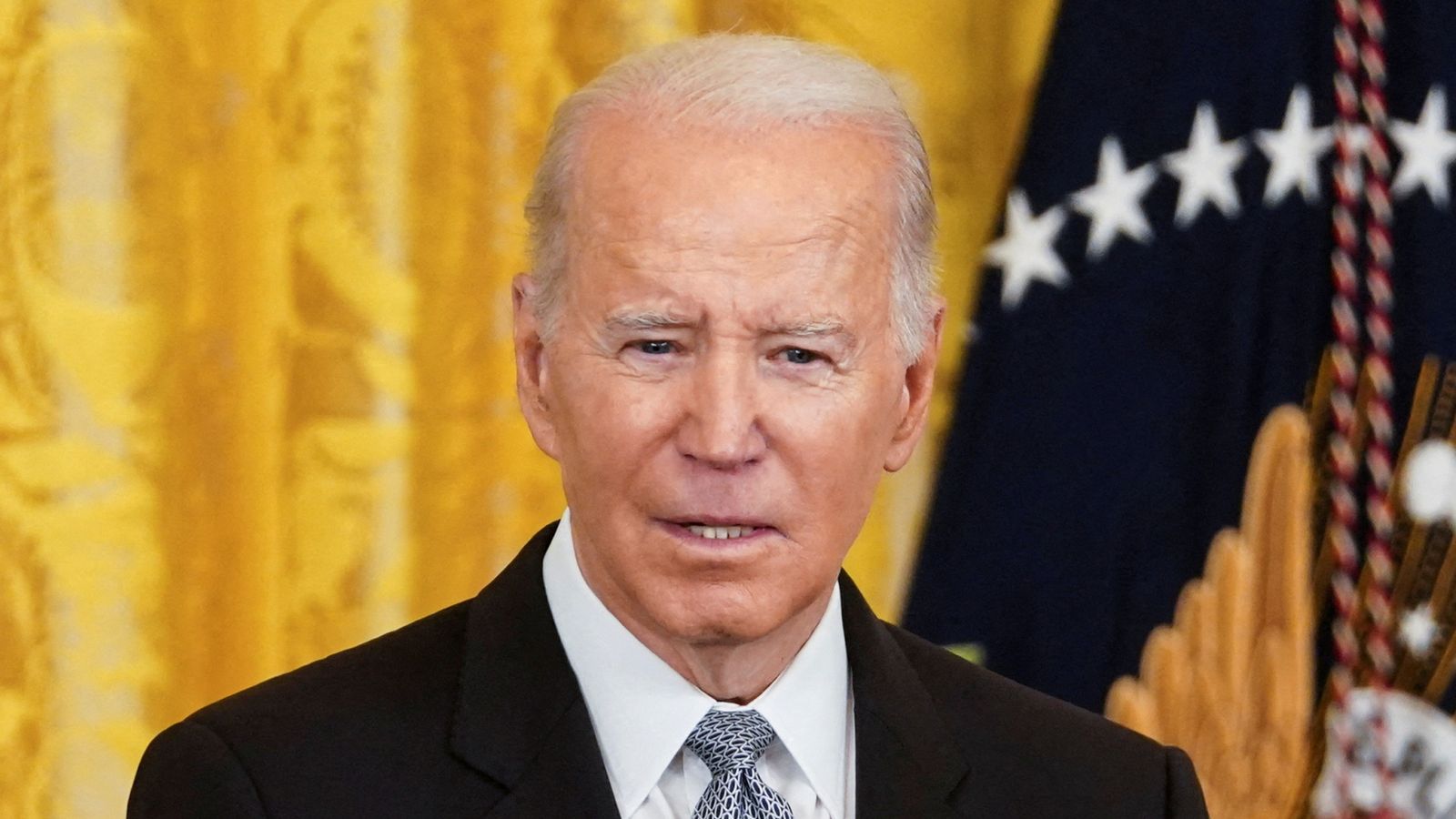Joe Biden to visit Northern Ireland and the Republic next week

US President Joe Biden will visit Northern Ireland and the Republic next week, the White House has announced.
The visit marks the 25th anniversary of the signing of the Good Friday Agreement.
He will first travel to Belfast in Northern Ireland, from April 11 to 12 to mark the “tremendous progress” made since the signing of the agreement.
White House press secretary Karine Jean-Pierre said the trip would “underscore the readiness of the United States to support Northern Ireland’s vast economic potential to the benefit of all communities.”
Mr Biden will then travel to Ireland from April 12 to14.
“He will discuss our close co-operation on the full range of shared global challenges,” Ms Jean-Pierre continued.
She added: “He will also hold various engagements, including in Dublin, County Louth and County Mayo, where he will deliver an address to celebrate the deep, historic ties that link our countries and people.”
It comes after British Prime Minister Rishi Sunak invited Mr Biden over to Northern Ireland last month as the pair met for talks in San Diego to announce a nuclear submarine deal with Australia.
The US president often highlights his Irish roots and has taken a keen interest in issues related to the agreement.
Advertisement
Please use Chrome browser for a more accessible video player
1:12
‘I take pride in my Irish ancestry’
Irish premier Leo Varadkar described the upcoming official visit by the US president as “an opportunity to celebrate and renew the strong political, economic and personal ties that bind our two countries”.
He said it would be “a privilege and a special moment” to welcome Mr Biden back – as President of the United States.
“Joe Biden has always been a friend of Ireland. Over many decades, and to this day, he has supported the cause of peace in Ireland and the Good Friday Agreement,” Mr Varadkar said.
“He stood with us as we navigated the difficult consequences of Brexit.
“When we spoke recently in the White House, President Biden was clear that in celebrating the Good Friday Agreement, we should be looking ahead, not backwards.
“We need to continue working together as true partners to fulfil the potential of all the people who call this island their home.”
Read more US news:
Trump claims he’s victim of ‘election interference’ in first speech since being charged
Cruise passenger dies after falling from balcony on ship near Miami
Rupert Murdoch and Ann Lesley Smith ‘call off their engagement’
What is the Good Friday Agreement?
The Good Friday Agreement (GFA) was signed with the aim to end the ongoing conflict in Northern Ireland at the time, known as The Troubles, which started in the late 1960s. The agreement was signed on 10 April 1998.
A new government was formed in Northern Ireland representing both sides in order to foster cooperation between the two communities.
However, Brexit rocked the political situation, with Northern Ireland being the only UK country to have a border with an EU nation – the Republic of Ireland.
Checks on the border would disrupt the GFA, according to both nations, so the controversial Northern Ireland Protocol was agreed in order to avoid a hard border on the island of Ireland.
The UK has since agreed to a new post-Brexit deal – the Windsor Framework – with the EU in an attempt to overcome the issues with the protocol by introducing two new routes for goods, despite ongoing opposition from the Democratic Unionist Party (DUP).
The plan is for products travelling through Northern Ireland to reach the Republic – which is in the EU – to go via a red lane for all the relevant customs checks, while those being sent only to Northern Ireland will go via a green lane.